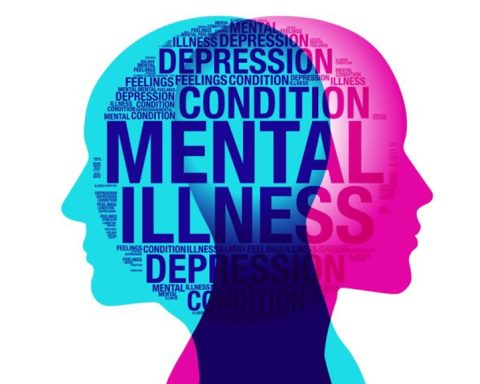In recent years, discussions surrounding mental health in the workplace have gained significant traction, shedding light on the pervasive impact of work-related stress and the need for proactive measures to support employee well-being.
More than half the world’s population are currently in work and 15% of working-age adults live with a mental disorder. Without effective support, mental disorders and other mental health conditions can affect a person’s confidence and identity at work, capacity to work productively, absences and the ease with which to retain or gain work. According to the World Health Organisation (WHO), an estimated 12 billion working days are lost every year across the globe to depression and anxiety alone. Also, people living with severe mental health conditions are largely excluded from work despite this being important for recovery. Mental health conditions can also impact families, careers, colleagues, communities, and society at large. Depression and anxiety cost the global economy US$ 1 trillion each year predominantly from reduced productivity.
Join our WhatsApp ChannelEveryone has the right to work and all workers have the right to a safe and healthy working environment. Work can be a protective factor for mental health, but it can also contribute to worsening mental health. Work-related mental health conditions are preventable. Much can also be done to protect and promote mental health at work and support people with mental health conditions to participate fully and equitably in work.
WHO has developed Guidelines on mental health at work. This is accompanied by the Mental Health at Work: Policy brief developed in collaboration with the International Labour Organisation. Together, these products aim to improve the implementation of evidence-based recommendations for mental health at work to promote mental health, prevent mental health conditions, and enable people living with mental health conditions to participate and thrive in work.
READ ALSO:Depression: Africa’s Mental Health Pandemic
In Africa, the prevalence of mental health issues in the workplace is a pressing concern. According to the World Health Organization (WHO), an estimated 66 million people in Africa are living with depression, and the continent carries a significant burden of mental health disorders. In the global context, the WHO reports that depression and anxiety disorders cost the global economy $1 trillion in lost productivity each year, emphasizing the far-reaching impact of mental health on work performance.

Psychologists emphasize the intricate interplay between mental health and the workplace. Dr. Aisha Malik, a renowned psychologist, asserted that work-related stress can exacerbate pre-existing mental health conditions and lead to the development of new ones. She underscored the need for organisations to foster supportive environments and implement mental health initiatives that de-stigmatize seeking help.
The case of John Mwangi, a marketing executive in Nairobi, serves as a poignant reminder of the impact of work-related stress on mental health. After months of enduring excessive workload and minimal support, John experienced severe burnout and was subsequently diagnosed with depression. His journey to recovery underscored the necessity of workplace environments that foster open dialogue and proactive mental health support.
There’s need to focus on the mental health of employees. The consequences of neglecting workplace mental health are profound and far- reaching, affecting job performance, productivity and ultimately, businesses’ bottom line. When cherished employees don’t receive the support they need, it can compromise organizational vitality by contributing to a strained environment. Breaking this cycle requires a shift in organizational investments to mental health.
READ ALSO: Health Conference Mulls Effort For Repositioning Africa’s Healthcare System
Dr. Michael Nguyen, a workplace psychologist specializing in stress management, underscored the importance of equipping employees with effective stress coping mechanisms. He advocated the incorporation of stress resilience training, mindfulness practices, and promoting work-life balance as integral components of a comprehensive mental health strategy in the workplace. Dr. Nguyen emphasizes that proactive stress management can mitigate the onset of mental health challenges and bolster employee well-being.
Dr. James Carter, a seasoned clinical psychologist, emphasizes the critical need for a proactive approach to mental health in the workplace. He stresses that fostering an environment where employees feel psychologically safe to express their concerns and seek support is paramount. Dr. Carter advocates the implementation of regular mental health check-ins and de-stigmatizing mental health discussions at all levels of the organisation.
In a recent interview with the Mental Health Advocacy Foundation, Ms. Sarah Kariuki, a representative of an NGO dedicated to mental health awareness, highlighted the concerning rise of workplace-related mental health issues in Africa. She stressed the need for collaborative efforts between NGOs, government bodies, and private enterprises to prioritize mental health support systems and de-stigmatize seeking help.
The effects of mental health in the workplace are far-reaching, impacting not only the individuals experiencing mental health issues but also their colleagues, productivity, and the overall work culture.
READ ALSO: Economic Hardship Forces Lady Banker To Commit Suicide In Lagos
Firstly, the most apparent effect of mental health in the workplace is the impact on the individual’s well-being. Anxiety, depression, and other mental health conditions can lead to decreased motivation, concentration, and overall job satisfaction. These issues can manifest in absenteeism, presenteeism, and reduced productivity, ultimately affecting the individual’s performance and ability to contribute effectively to their work.
Moreover, mental health concerns can have a ripple effect on the entire team and work environment. Colleagues may experience increased stress and workload due to the absence or decreased productivity of their peers, leading to strained working relationships and potential conflicts. Additionally, a negative work environment can emerge, characterized by low morale, decreased job satisfaction, and higher turnover rates, as employees struggle to cope with the repercussions of mental health issues.
Furthermore, the impact of mental health on the workplace extends beyond the individuals and their immediate colleagues. Employers and organizations also bear the burden of the effects of mental health on the bottom line. Increased healthcare costs, decreased productivity, and higher turnover rates contribute to financial strain and reduced overall performance for the organization.
In addition to these tangible effects, the stigma surrounding mental health in the workplace can further exacerbate the situation. Employees may be hesitant to disclose their mental health concerns due to fear of discrimination or repercussions, leading to underreporting and lack of access to necessary support and resources. This perpetuates a cycle of unaddressed mental health issues and prevents the implementation of proactive strategies to support employees’ well-being.
Lastly, the effects of mental health in the workplace are multi-faceted and demand attention at both the individual and organizational levels. It is imperative for employers to prioritize mental health awareness, destigmatize discussions around mental well-being, and provide access to resources such as counseling, flexible work arrangements, and mental health education. By recognizing and addressing the effects of mental health in the workplace, organizations can foster a supportive and inclusive environment that promotes the well-being and productivity of all employees.
READ ALSO: Hard Work, Faith In God Took Me To The Top – Alakija
This article serves as a call to action, urging organizations, policymakers, and individuals to champion mental health initiatives that prioritize the welfare of employees and foster environments of empathy and support. Only through collective efforts can we cultivate workplaces that nurture not only professional success but also the profound well-being of every individual.
In conclusion, the intersection of mental health and the workplace demands urgent attention and concerted action. By acknowledging the statistics of mental health issues, embracing psychologists’ insights, understanding the effects of work stress, heeding the voices of NGOs, and recognizing real-life cases, we can pave the way for a future where the workplace is a haven for holistic well-being.
















